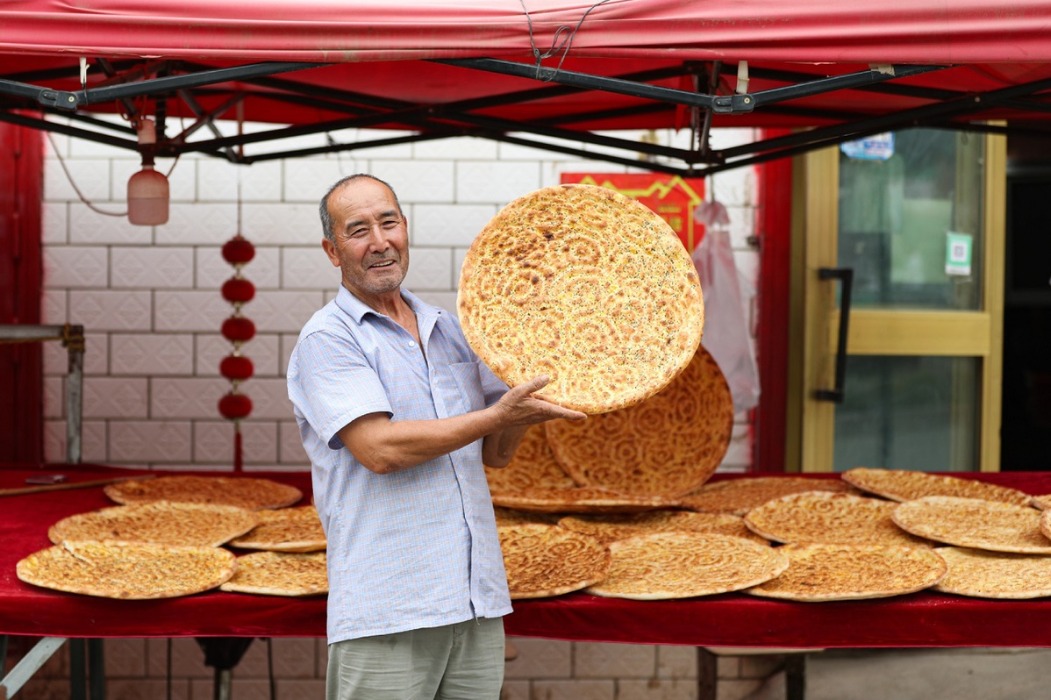Pre-made dish debate heats up
Celebrity's criticism sparks discussion on restaurant practices and food safety

A recent controversy has drawn widespread public attention to pre-made dishes in China, prompting calls for greater standardization and transparency in the industry. Central to the discussion are concerns over food safety and consumers' right to be fully informed.
The debate began when celebrity entrepreneur Luo Yonghao, known for his outspoken views and livestreaming influence, took to social media site Sina Weibo on Wednesday to criticize the popular Xibei restaurant chain.
Luo wrote that after a recent meal with colleagues, he found most dishes were pre-made and costly, calling the experience "disgusting" and urging the government to require restaurants to clearly indicate whenever pre-made dishes are used. The post quickly went viral, garnering millions of comments and sparking industry discussion.
Xibei founder Jia Guolong responded by emphasizing that the chain uses pre-preparation techniques but does not serve pre-made meals. "Not a single dish in Xibei outlets is a pre-made dish," Jia said.
The chain opened its kitchens to media for a firsthand look at operations, but the distinction between pre-made dishes and pre-preparation processes remained unclear, fueling further debate. Jia described the controversy as "the biggest external crisis" in Xibei's history, noting a sharp decline in daily revenue across nearly 400 outlets over several days.
Despite widespread adoption in large chain restaurants, pre-made dishes remain controversial for several reasons: small-scale producers may fail to meet food safety standards; consumers lack clarity on what constitutes a pre-made dish; and some businesses mislead patrons by charging for "freshly made" dishes that are actually reheated pre-made products.
Regulatory notices encourage restaurants to clearly indicate their use of pre-made dishes to ensure consumer rights to information and choice.
According to a 2024 notice issued by the State Administration for Market Regulation and other authorities, pre-made dishes are pre-packaged food products made from one or more edible agricultural ingredients, with or without seasonings and without added preservatives. They undergo industrial pre-processing — such as mixing, marinating, forming, frying, baking, boiling or steaming — and may include seasoning packets. These products are intended to be consumed after heating or cooking and must be produced, stored, transported and sold according to the conditions specified on their labels.
Fresh vegetables or ingredients that have only undergone simple processing, including washing, peeling or cutting, as well as ready-to-eat foods — such as salads, convenience meals, steamed buns, pastries, hamburgers, sandwiches, pizzas and central kitchen-prepared dishes delivered to chain outlets — are not considered pre-made dishes. Heating refers to simple reheating before consumption, while cooking indicates thorough preparation of partially processed ingredients.
The notice outlined measures to strengthen food safety supervision. These include enforcing producer responsibility, verifying raw materials, regulating food additives, revising production licensing, enhancing inspections and promoting clear labeling in restaurants.
Earlier, officials from the State Administration for Market Regulation said pre-made dishes do not require preservatives because cold storage, freezing and sterilization ensure safety, while aligning with consumer expectations and risk control requirements.
Tan Guijun, director of the Nutrition Department at Tianjin First Central Hospital, told Xinhua News Agency that while fresh ingredients retain nutrients more fully and are generally more aligned with the body's needs, this does not mean pre-made dishes should be dismissed entirely. As long as production, transportation, storage and cooking processes comply with relevant food safety standards, pre-made dishes can adequately meet the body's requirements for calories and nutrition.
According to previous media reports, consumers and industry insiders said the controversy reflects broader concerns and underscores the need to balance industry efficiency with consumer protection, with transparency, regulation and innovation shaping the sector's future.
- Pre-made dish debate heats up
- Xinjiang county's cotton fields fully mechanized
- China uses tech to aid elderly, disabled
- Chief executive says 8th Legislative Assembly election of Macao SAR successfully held
- 26 elected as new legislators of Macao SAR: preliminary results
- Solar project helps the sun shine on Huzhu's economy





































